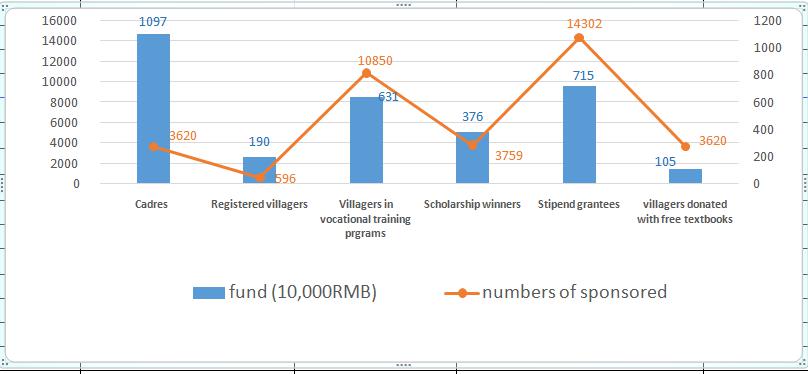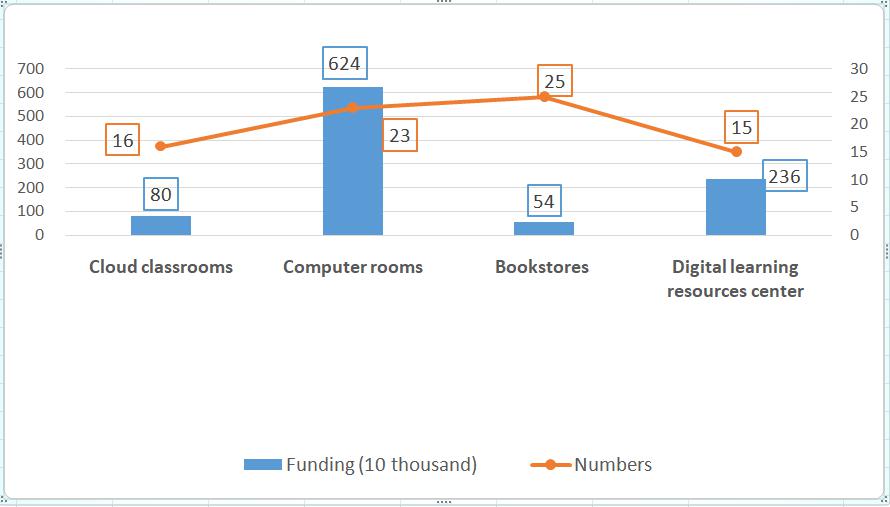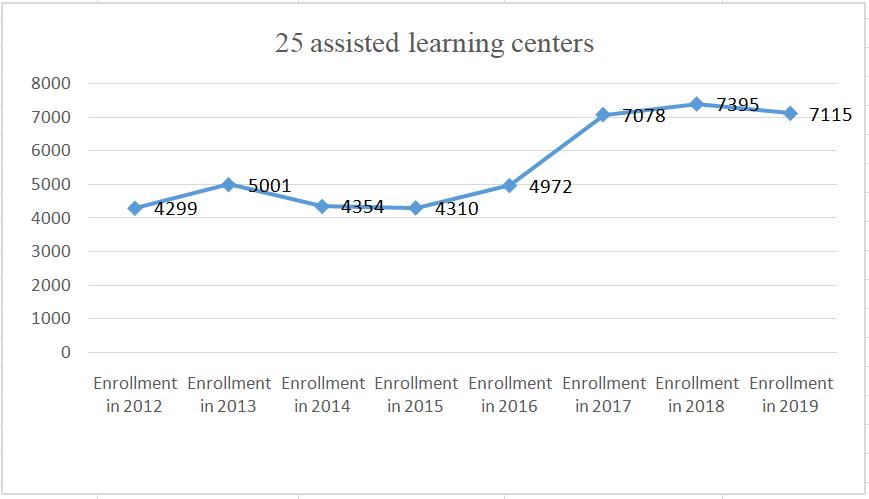 Poverty alleviation has been one of the Chinese government’s core campaigns since 2013. Education is the key to breaking the inter-generational transmission of poverty. Thanks to the development of information technology, open and distance education has become an effective way of helping people affected by poverty access high quality education and transform their lives.
Poverty alleviation has been one of the Chinese government’s core campaigns since 2013. Education is the key to breaking the inter-generational transmission of poverty. Thanks to the development of information technology, open and distance education has become an effective way of helping people affected by poverty access high quality education and transform their lives.
The Open University of China (OUC) has played an active and instrumental role in China’s poverty alleviation efforts, helping people in rural areas to upgrade their skills and integrate into the local labor market. Some people have been lifted out of poverty with the help of open and distance education.
As a pioneer of "internet + education" with 45 branches nationwide, the OUC has subsidised 4,216 village cadres and other local learners with financial difficulties to pursue education at the diploma or undergraduate level in 25 poverty-stricken counties in 12 provinces and autonomous regions, including Sichuan, Hunan, Yunnan, Shanxi, and Guangxi Autonomous Region.
Yang Changtai, who is nearly 50 years old and lives in Longyin Village, Wulong Town, Cangxi County, Yunnan province, used to be a poor villager and a middle school dropout . A few years ago, he planted seedling but lost all his savings and ended up owing RMB 80,000 because he lacked related experience and knew very little about the market. Yang registered and got financial support to study at the OUC after applying with its local learning centre. After studying, he obtained a diploma in facility agriculture technology. As he explained, “The diploma program includes training in both agricultural production, such as seedling planting and how to raise rice and shrimp together, and marketing and e-commerce training. It is a very practical program.” Under the instruction of his tutor, Yang spent only six months planting cost effective seedlings and earned a net income of more than RMB 100,000. He not only paid the debt, but also became rich himself. “I used to be a rural worker without much knowledge but with the support of the government and the OUC, I have transformed my life and become a modern rural citizen,” Yang said with gratitude.
This is just one of the examples of the people that have been sponsored by the OUC in recent years. As of the end of June 2020, the OUC has invested a total of RMB 41.08 million and assisted 36,747 local villagers in these 25 counties.

Figure 1 Number of villagers being sponsored by the OUC in the 25 poverty-stricken counties
In addition to helping individuals access high-quality higher education resources and alleviate their poverty, the OUC also helps local education with capacity building. As of the end of June 2020, 16 cloud-based classrooms and 23 computer rooms have been set up with 2,362 facilities being donated. Twenty-five bookstores have been founded and 150,000 books have been contributed. Around 37,500 digital micro lectures have been supplied to 15 learning centres in the 25 counties.
Current status of open and distance education

Figure 2 Number of cloud classrooms, computer rooms, bookstores, and digital learning resource centres that the OUC has financed in the 25 counties
The OUC has also implemented more than 80 training programs to improve the ICT abilities of local teachers. In total, 10,850 teachers have been trained for free. As a result of the above measures for eradicating poverty, the number of learners in the 25 counties has dramatically increased from less than 5,000 in 2017 to over 7,000 in 2019.

Figure 3: Enrolment student number in the 25 counties
Ding Lina, party secretary of Tianlong Village, the poorest village in Taolin Town, Xishui County, Zunyi City, Guizhou Province, is a sponsored student of the OUC. She plants 50 acres of peppers with her villagers. In 2019, she achieved pepper production of 6,000kg and adopted an order-to-sale model to sign purchase and sales contracts with local cooperatives, helping five households and 12 people out of poverty. She learnt this sales method from the OUC.
Bai Mingfu, a restaurant owner in Jiulongshan, Donghuang Town, Shangyou County, Jiangxi Province, earned a lot of money after receiving Chinese cooking training at the OUC. After applying what he learnt during the training at his restaurant, the restaurant's turnover increased from around RMB 8,000 per month to around RMB 12,000, which brought him a tangible increase in profits.
There are many such examples among the OUC’s sponsored learners. From the above stories, we can clearly see that open and distance education have created achievements in poverty alleviation. However, simply increasing household income in poverty-stricken areas is not enough. The gap between quality of life in rural and urban areas needs to be bridged as soon as possible, and one of the ways to do this is through education. In the Internet Plus Education era, open and distance education will be of greater significance than ever before.
By Hou Songyan, International Department, OUC
Co-author, Zhang Zhijun, Poverty Alleviation Office, OUC
Co-author, Shao Dandan, Poverty Alleviation Office, OUC
Co-author, Yu Zhangli, Poverty Alleviation Office, OUC